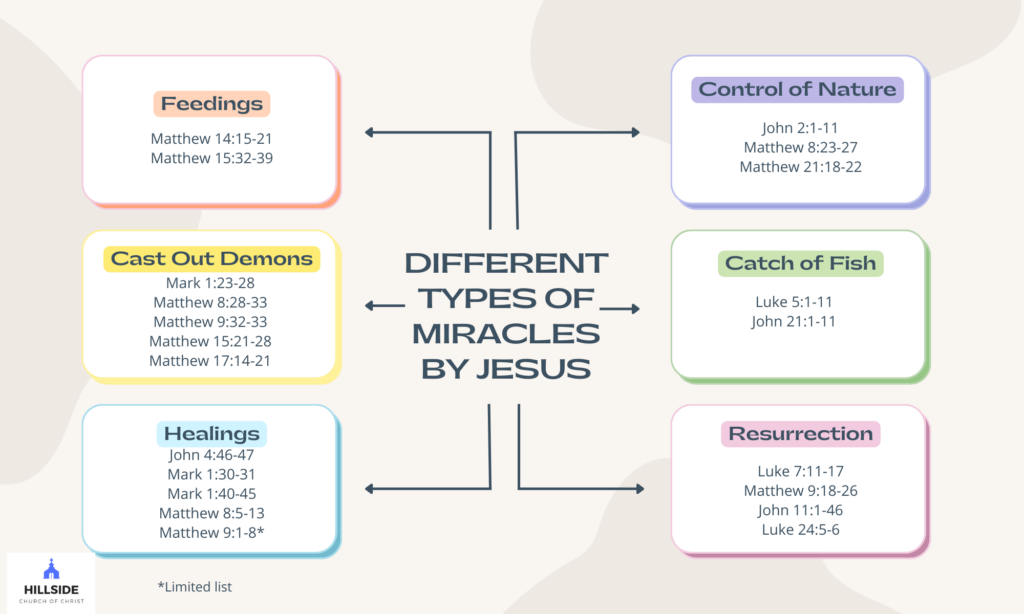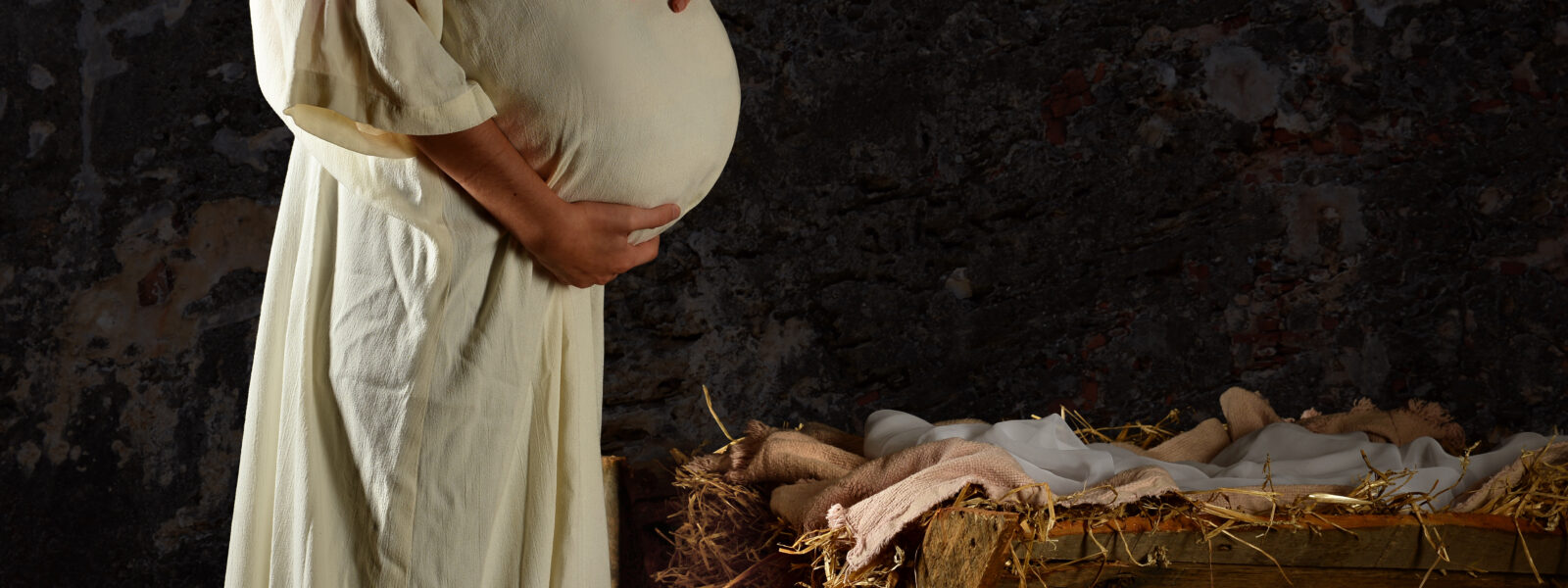As John points out at the end of His Gospel, Jesus did a ton of signs that confirm
So what’s so special about the Virgin Birth?
After all, it didn’t mark His victory over the grave.
It didn’t bring anyone back to life.
It didn’t heal anyone of their sight.
So why is it even worth talking about — aside from the fact it’s so amazing?
Depending on who you talk to, Jesus fulfilled anywhere from 64 to 460 prophecies in His lifetime. Those Old Testament prophecies cover every part of His life: where He was born, how He would die, His reception amongst the people, etc.
Only one talks about the fact that He was born of a virgin. Here it is:
“Therefore the Lord Himself will give you a sign: Behold, the virgin shall conceive and give birth to a son, and she will name Him Immanuel.”
(Isaiah 7:14)
Fulfilling even one prophecy would be enough to convince most people of who He is, but to fulfill all of them? That’s an ironclad verification of His status as the Messiah.
Still….what does it mean?

What the Virgin Birth Does NOT Mean
There are some that connect the Virgin Birth of Christ to the Calvinistic concept of Hereditary Depravity. This doctrine teaches that — because of Adam’s fall — man was born with a sinful nature. This is in contrast to the Catholic doctrine of original sin that claims we inherit Adam’s sin.
Proponents of this argue that if Jesus had a physical father by which He derived His lineage, then He would have inherited Adam’s sinful nature. Thus, He would not have been our perfect sacrifice.
And yet, ironically, the same prophecy that references the Virgin Birth of Jesus also talks about man’s relationship with good and evil.
“He will eat curds and honey at the time He knows enough to refuse evil and choose good.”
(Isaiah 7:15)
In less than 15 words, Isaiah annihilates any notion that we cannot make the choice between good and evil without the direct intervention of God on our heart. Why? Because this passage shows that mankind reaches an age where they’re able to understand that intuitively.
We see that all the time, don’t we? I have three children, and by the time they were entering the early toddler years, they at least knew the difference between what they should and shouldn’t do.
As you grow, you understand that just by virtue of life experience. You recognize that there is a good path and a bad path, and each of those have consequences.
That’s what is said about Jesus within the same Virgin Birth prophecy: There comes a time when man recognizes good and evil. It’s intuitive. It’s nature. We get it.
Jamming a Calvinistic idea into the Virgin Birth isn’t only unnecessary, it’s dishonest.
H2: Why the Virgin Birth Is Important
That being said, there are several reasons why the Virgin Birth is absolutely necessary and worth our consideration. Some of these you may know, but prayerfully, they’ll at least spur on our thoughts to meditate deeper on God’s Word.

H3: The Virgin Birth Fulfills Scripture
If you look at the genealogy of Jesus in Matthew 1, the Text says that all of them were “born of a father.”
That is, until you get to Jesus.
There, Matthew makes a subtle divergence. Instead of saying that “Joseph begot Jesus,” Matthew says that Joseph was the “husband of Mary, by whom Jesus was born.”
In other words, Jesus is seen as the direct offspring of Mary, not Joseph.
That doesn’t diminish Joseph’s role. In fact, other passages would claim that Joseph was the early father of Jesus (Matthew 13:55; Luke 4:22).
In terms of direct lineage though, Jesus came from God, while Mary was the one that physically bore Him.
As mentioned above, this was done to fulfill prophecy — a point that Matthew 1:22 is quick to point out:
“Now all this took place so that what was spoken by the Lord through the prophet would be fulfilled.”
(Matthew 1:22)
Fulfilling prophecy is intentional for Jesus. At least 18 different times in Scripture, it’s said that Jesus did something “so that Scripture would be fulfilled.”
While some may say that Jesus manufactured His own divinity by intentionally fulfilling these prophecies, there were a ton of them that Jesus would have had no control over (if He were only human): where He was born, how He would die, and who would bury Him, for starters.
The fulfillment of prophecy is one of the most impactful ways that Jesus’ role as the Messiah is confirmed.
When He stood up in Nazareth to read from Isaiah, He flatly stated: “Today, this Scripture has been fulfilled in your hearing” (Luke 4:21). Later, when He met the two men on the road to Emmaus, Luke 24:27 says that He began to explain “everything written about Himself,” beginning with Moses and the Prophets.
The Virgin Birth is one of those prophecies that confirms who He is, but it would’ve been impossible for Him to create that fulfillment on His own.
Or anyone, for that matter.
H3: The Virgin Birth Reveals Jesus’ Humanity
The name of Jesus literally means “God With Us.” I don’t know of a more direct reference to Jesus’ role than that.
Genesis 3 claims that Satan’s head would be crushed by the heel of Someone who comes from the seed of the woman. Another reference to the humanity of Jesus.
Just like the Resurrection of Jesus reveals His deity, His entrance into the world by way of Mary displays His humanity. It shows that He is one of us: relatable, experienced, and approachable.
This condescension of God is exactly what Mary picked up on in Luke 1:46-55. Through her speech, she extols the mercy of God — that He would tear down those in high places and look on her, God’s humble servant.

Isn’t that what all of us think as we reflect on our relationship with God? That Jesus came to earth as a Man, lived as a Man, and died as a Man? Wouldn’t it have been easier (and more comfortable) for Him to stay in Heaven?
Yet, He didn’t. And we’re so very thankful to have a Savior that we can identify with.
H3: The Virgin Birth Paints God as the Giver of Life
Only one Being can give life: God.
At the beginning of creation, after God had spoken the world into existence, it then says that He breathed into Adam the “breath of life” (Genesis 2:7).
Just as Adam had no earthly father that contributed to his existence, Jesus had no earthly father either. Both of them were created directly by God, whether from the dust or through a virgin.
This isn’t the only correlation between Adam and Jesus. Adam’s actions in the Garden meant that mankind was exposed to sin, whereas Jesus’ work allowed life for all who came to Him.
That gift extends to us. Just as God gave life to Adam and to Jesus’ physical body, so we can have life that only comes from God as well. He is the giver of not only physical life, but spiritual as well.
The Virgin Birth shows us — in vivid picture — God’s ability to generate life out of nothing. If we believe that, then it’s not a reach for us to believe in eternal life for ourselves.
Last modified: July 31, 2023
